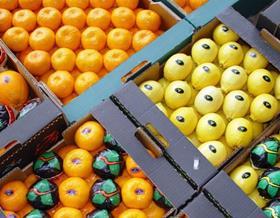
Last weekend’s failed military coup in Turkey has had little impact on the trade of fruit and vegetables, according to the country’s exporters, with business continuing as normal despite president Recep Erdoğan’s recent call for a three-month state of emergency.
“There are no business restrictions, with companies able to buy and sell and import and export as usual,” said Cevdet çekok of Istanbul-headquartered exporter çekok Group. “Exchange rate fluctuations are the main problem. The dollar went up against the Turkish lira, but it is returning to normal.”
At the start of this week, çekok Group sent a number of trucks for export and experienced no problems. “Everything is normal from a trading point of view, even if the political situation is confusing,” said çekok. “It was good that it occurred over the weekend, when most business had stopped and the stock markets were closed.”
Sertaç Kırmızıdam of Adana-based Kırmızıdam remains optimistic about the future and hopes that the Turkish government’s decision to forge friendlier ties with its neighbours will lead to a speedy normalisation of relations with Russia in time for the main citrus and vegetable campaigns.
“Government officials in Russia and Turkey will ultimately decide, but I think they will be looking at September, maybe even earlier,” said Kırmızıdam. “The sultana season is set to start and Russia is the best market for this product.”
“Before the attempted coup, talks with Russia were going well,” continued çekok. “It looked as if Russian tourists would start to come back in time for the high-season. But we have our plan. We knew tourism would be down this year, so we organised our sales and stocks accordingly.”
According to çekok, the post-Ramadan celebrations have helped suppliers during this time, as has the government’s decision to extend the holiday from four to nine days to boost tourism.
“During the current period, we don’t usually send much to Russia,” said çekok, “so the closure of the market has not been too harmful. The main window is from September to March or April, mostly for citrus and vegetables.”
His prediction is that trade with Russia will resume in September. “I am optimistic,” he said. “They need our fruit and vegetables and we need their market. With Russia’s continuing ban on EU produce, it would be a great opportunity for Turkish exporters.”



